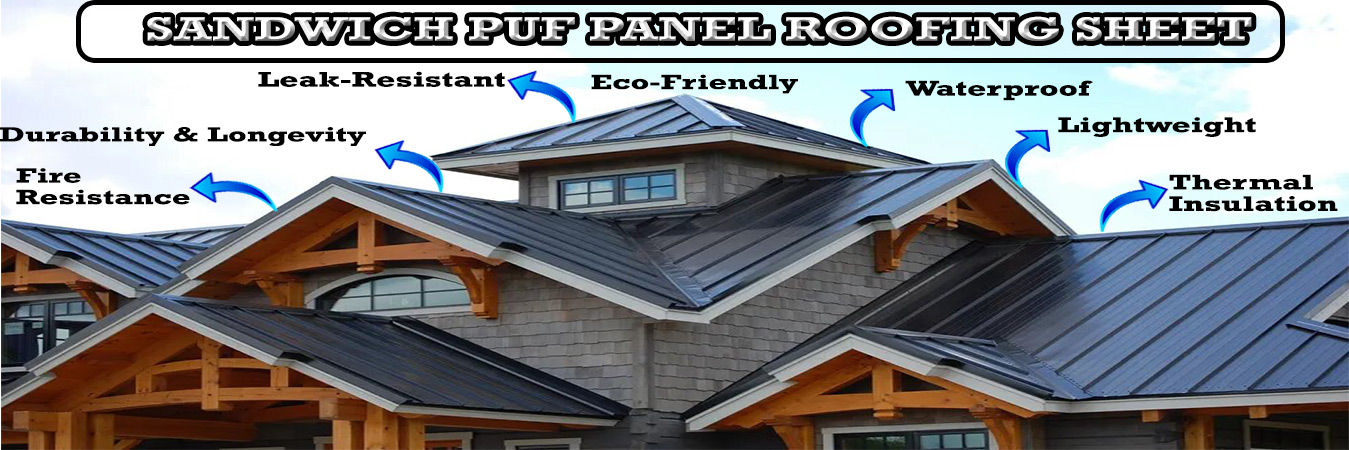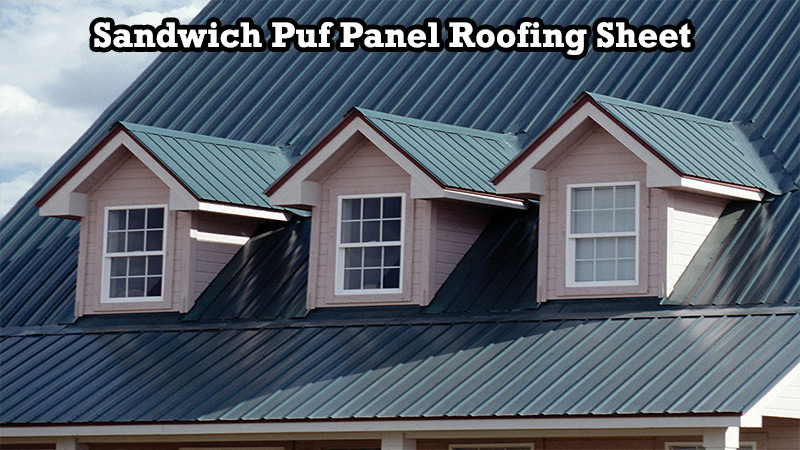


The world of construction materials has witnessed remarkable advancements in recent decades, and among these innovations, sandwich PUF (Polyurethane Foam) panel roofing sheets stand out as a revolutionary solution for roofing and cladding in various construction projects. These panels have gained widespread recognition for their exceptional thermal insulation properties, durability, and versatility. In this essay, we will explore the key features, advantages, and applications of sandwich PUF panel roofing sheets, shedding light on their significance in modern construction.
Sandwich PUF panel roofing sheets are a composite building material consisting of three main layers: two rigid outer metal sheets (typically made of steel or aluminum) and an insulating core of polyurethane foam. The outer metal sheets are coated with various finishes, such as polyester, PVDF, or PVC, to enhance their durability and resistance to environmental factors. The insulating core, made of PUF, plays a pivotal role in providing exceptional thermal insulation properties to the panel.
Thermal Insulation: One of the most significant advantages of sandwich PUF panel roofing sheets is their exceptional thermal insulation capability. The PUF core minimizes heat transfer, making these panels highly energy-efficient. This property helps maintain a comfortable indoor temperature, reducing the need for excessive heating or cooling systems and, consequently, lowering energy consumption and costs.
Lightweight and High Strength: Sandwich PUF panels are lightweight compared to traditional construction materials like concrete or brick. Despite their reduced weight, they exhibit remarkable strength and structural integrity, making them suitable for a wide range of applications, from residential buildings to industrial warehouses.
Easy Installation: The simplicity of installation is another notable feature of sandwich PUF panel roofing sheets. These panels are pre-fabricated, allowing for swift and hassle-free installation. The ease of assembly not only saves time but also minimizes labor costs.
Weather Resistance: The outer metal layers of sandwich PUF panels are designed to withstand harsh weather conditions, including rain, snow, UV radiation, and extreme temperatures. This weather resistance ensures the longevity and durability of the roofing system.
Energy Efficiency: The outstanding thermal insulation properties of PUF core panels contribute significantly to energy efficiency in buildings. Reduced energy consumption leads to lower utility bills and a smaller carbon footprint.
Cost Savings: The combination of energy efficiency, easy installation, and long-term durability makes sandwich PUF panels a cost-effective choice for roofing and cladding. Their low maintenance requirements further add to the cost savings over the life of a building.
Versatility: Sandwich PUF panel roofing sheets are highly versatile and adaptable to various architectural designs and purposes. They are commonly used in residential, commercial, and industrial construction projects, providing a wide range of design options.
Sustainability: PUF core panels are environmentally friendly, as they are recyclable and contribute to reduced energy consumption. Additionally, the reduced need for auxiliary heating and cooling systems lowers greenhouse gas emissions.
Residential Buildings: Sandwich PUF panels are increasingly used in residential construction for roofs and walls. They help create energy-efficient homes that provide comfort and lower utility bills.
Commercial and Industrial Buildings: The versatility and durability of PUF panel roofing sheets make them a preferred choice for warehouses, factories, and commercial spaces where temperature control and energy efficiency are critical.
Cold Storage Facilities: The exceptional insulation properties of these panels make them ideal for cold storage facilities, maintaining stable temperatures for perishable goods.
Agricultural Structures: Sandwich PUF panels are also used in agricultural buildings like poultry farms and dairy facilities to create a controlled environment for livestock.